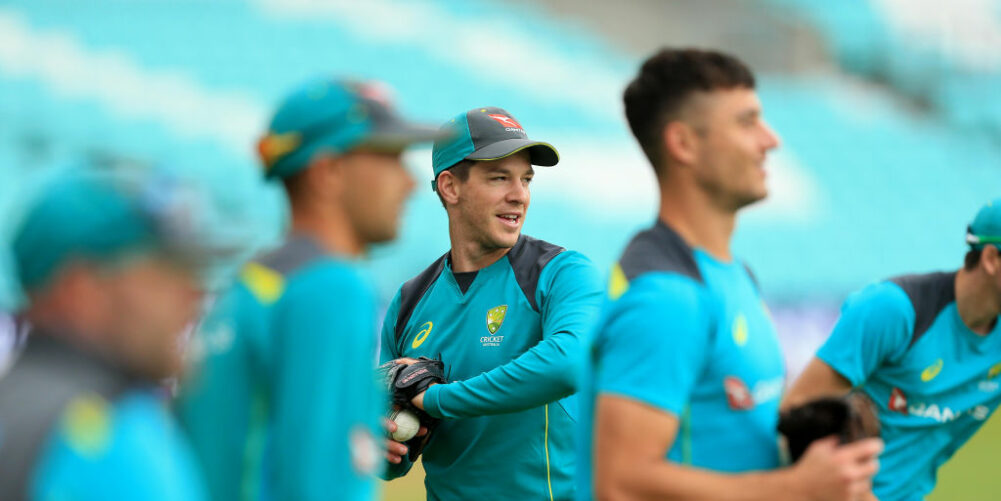By Derek Pringle
Not for the first time is an Australian cricket team undertaking a social experiment to which it is ill-suited – that of playing the so-called Gentleman’s game like gentlemen.
This newly neutered Australia, captained by choirboy lookalike Tim Paine and coached by Justin Langer, a reformed acolyte of the old ways, has just unveiled their new Aussie-lite team at the Kia Oval, the first in a series of five one-day internationals against England.
As a PR exercise it looked heartfelt with both teams shaking hands out on the field before the match and promising not to sledge one another. But as a cricket contest, which England won, it stunk – Australian cricketers being unable, essentially, to operate at full bore and be civil to opponents at the same time.
But then they should know that as they have tried to become the nice guys of world cricket before, once under Allan Border and once under Ricky Ponting.
Border assumed the captaincy of Australia from Kim Hughes who’d inherited the team from Greg Chappell. The culture of those teams had been shaped by Greg’s brother Ian a decade earlier, with players like Dennis Lillee and Rod Marsh – men who played hard and sledged even harder.
Although a tough competitor, Border was different. He had friends in the England side and felt that animus towards them on the pitch would be unseemly – at least he did until the losses began racking up. Two Ashes defeats later he’d reverted to the old ways, suspending all niceties until the urn was back in Australian hands.
Ponting too tried to clean up the culture after a particularly unsavoury series against India in 2008. The abuse dished out to India’s players reached what many considered a new low, with several Australian newspapers calling for Ponting to be sacked as captain.
As a result, reforms to the team culture were made and they lost the next two Ashes series, including one at home. It was a lapse in effectiveness which saw Andrew Strauss, England’s captain at the time, make the observation that teams no longer feared Australia as they had “lost their aura.”
Ponting’s successor Michael Clarke also noted that and, not wanting to follow his old leader as the most defeated Aussie captain in Ashes history, brought back the mongrel heart to its Test team with all the offensive bark it could muster. So, Jimmy Anderson: “Get ready for a broken f****** arm.”
Now, following meltdown in South Africa due to a ball-tampering scandal in which Steve Smith, David Warner and Cameron Bancroft have all been banned, Australia cricket is again having one of its periodic moments of soul searching.
A new captain and coach have been installed, though hearing the pair spell out the team’s new manifesto to Nasser Hussain on Sky TV, was like hearing the Tory party discuss Brexit – neither account quite tallying with the other.
While Paine talked about respecting the opposition as well wanting to win matches but play them in the right way as captain, Langer seemed conflicted about completely abandoning the old practices like sledging. When pushed by Hussain, he said that there was a place for sledging but not one for abuse, adding that who would want to play cricket in complete silence?
Both did, however, agree that all three banned players, Smith, Warner and Bancroft, would be welcomed back into the side if selected, providing, and this from Paine, “they show they have an understanding of how we want to play our cricket”.
Whether it will prove a Rubicon moment for the game in Australia rather depends, I feel, on the results of its national team. The one against England at the Oval looked anaemic but was missing three non-banned players through injury, so was below strength.
Even so, it looked like it was tip-toeing around trying not to break anything and, but for a faltering batting performance from England, should have been hammered. Real Australian teams just don’t play like that.
The Cricket Paper is on sale all year round! Make the summer one to remember by subscribing: http://bit.ly/TCP-Sub













